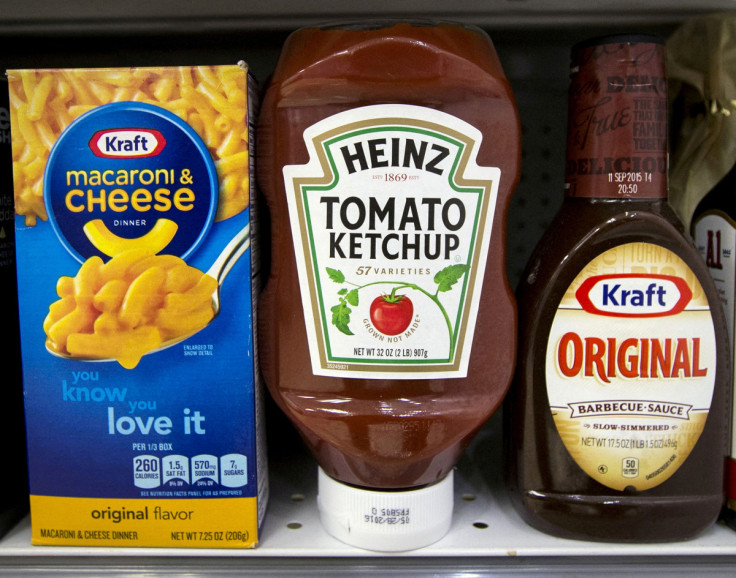Kool-Aid, Jet-Puffed and Crystal Light Go Natural as Kraft Heinz Joins Dye-Free Movement

Complying on the directive of US Secretary of Health and Human Services Robert F Kennedy Jr to ban artificial dyes in food, Kraft Heinz–which produces products such as Kool-Aid, Jet-Puffed, and Crystal Light–joins the growing list of brands phasing out artificial colours.
The compliance comes after growing public concerns and various research that have linked these substances to cancer.
The United States' decisive move to phase out artificial food colours marks a significant shift in food policy, aligning more closely with health standards in Europe and Canada. This transition prompts food brands to reformulate products, invest in natural alternatives, and respond to growing consumer demand for cleaner labels.
Removing FD&C Colors By End of 2027
In a recent press release, Kraft Heinz announced it would no longer launch new US products containing artificial Food, Drug & Cosmetic (FD&C) colours, effective immediately. It also plans to eliminate FD&C colours from all US products by the end of 2027.
The company stated that about 90% of its US portfolio is already FD&C colour-free by net sales. To address the remaining products, the company is using a '3Rs' strategy: removing colours that aren't essential, replacing artificial colours with natural alternatives, or reinventing new shades when suitable natural options don't exist.
Pedro Navio, North America President at Kraft Heinz, said, 'The vast majority of our products use natural or no colours, and we've been on a journey to reduce our use of FD&C colours across the remainder of our portfolio.'
In the press release, Pedro also stated that their popular Kraft Mac & Cheese hasn't been using FD&Cs since 2016 and that their iconic Heinz Tomato Ketchup has never had artificial dyes—its red hue comes from the tomatoes they use.
Other Brands Joining the Artificial Color Exodus
Major food companies have announced plans to phase out synthetic dyes by 2027. One of those companies is General Mills, which aims to eliminate certified colours from its cereals and K‑12 school foods by summer 2026 and from its complete US retail portfolio by the end of 2027, joining Kraft Heinz in the reformulation effort.
Jeff Harmening, chairman and CEO of General Mills, said, 'Knowing the trust families place in us, we are leading the way on removing certified colours in cereals and K-12 foods by next summer. We're committed to making food that tastes great and is accessible to all.'
Meanwhile, WK Kellogg is reformulating school‑served cereals and will stop launching new products with artificial dyes starting in 2026. Moreover, McCormick & Co has accelerated dye removal in its branded baking products.
What's The Regulation All About?
The US Department of Health and Human Services and the FDA announced new measures in April this year to eliminate petroleum-based synthetic dyes from the US food supply.
Actions include revoking approval for dyes like Citrus Red No. 2 and Orange B, phasing out six major FD&C dyes by late 2026, and fast-tracking natural alternatives such as gardenia blue and butterfly pea flower extract.
The FDA also partners with the NIH to study health impacts, particularly on children. Officials cite growing concerns over links between artificial dyes and conditions like ADHD, aiming to align US standards with those in Europe and Canada.
'These poisonous compounds offer no nutritional benefit and pose measurable dangers to our children's health and development. That era is coming to an end. We're restoring gold-standard science, applying common sense, and beginning to earn back the public's trust,' Kennedy said.
How Much of a Threat These Are
A 2019 Toxicological Reviews paper examined azo dyes (e.g., Red 40, Yellow 5, Yellow 6, Brilliant Blue) and found genotoxic and cytotoxic effects in human lymphocytes and inflammation markers in animal models, raising concerns about chronic exposure safety.
'Customers, in the meantime, should try to reduce their consumption of synthetic dyes and protect children even from the small amounts present in sweets, snacks and other ultra-processed foods,' the researchers stated.
Meanwhile, a 2022 mouse study in Nature Communications showed that long‑term consumption of Allura Red (FD&C Red 40) caused colitis and disrupted serotonin‑mediated gut barrier function, conditions that may predispose to inflammation‑associated cancers.
While the process involves logistical and financial challenges, it also allows brands to rebuild trust and differentiate themselves in a health-conscious market.
© Copyright IBTimes 2025. All rights reserved.





















